Studies and Coordination Office of the Secretary of State for Security (Ministry of Home Affairs)

The Foundation for Applied Research in Crime and Security (FIADYS) is a non-profit organisation that aims to promote scientific research in the fields of crime and security with a focus on professional practice and the needs of society.
We have an extensive network of renowned national and international researchers which allows us to develop projects in multiple areas.
We act as a bridge between the Academy and the society in order to transfer the conclusions of research to the professionals and public entities that ensure safety and crime prevention.
Our Goals are focused on research, training, consulting and international cooperation.
Honorary President:
D. Carlos Bueren Roncero
President:
Dra. Andrea Giménez-Salinas Framis
presidencia@fiadys.org
Vice President:
Dr. Jesús Palomo Martínez
vicepresidencia@fiadys.org
Secretary General:
Dra. Meritxell Pérez Ramírez
secretaria@fiadys.org
Members of the Board
Prof. Anabel Cerezo Domínguez
Universidad de Málaga
Prof. José Cid Moliné
Universidad Autónoma de Barcelona
Prof. Luis de la Corte Ibáñez
Universidad Autónoma de Madrid
Prof. Fernando Miró Llinares
Universidad Miguel Hernández
Prof. César San Juan Guillén
Universidad del País Vasco
Prof. Carlos Vázquez González
Universidad Nacional Española a Distancia (UNED)
Prof. RoseMary Barberet
Jonh Jay College
Prof. Raquel Bartolomé
Universidad de Castilla-La Mancha
The Board of Trustees is the organ of government, representation and administration of the Foundation. It is the responsibility of the Board of Trustees to fulfil the foundational aims, to define the best strategy for the achievement of said purposes and to meet the fulfilment and satisfaction of the economic and administrative needs of the Foundation.
The scientific board ensures that the Foundation’s research achieves excellence and meets the quality criteria of Science. The Scientific Board of FIADYS integrates notable academics across multiple disciplines and universities throughout Spain.
Prof. Antonio Andrés Pueyo
Professor of Psychology at Universidad de Barcelona.
Prof. José Luis de la Cuesta
Professor of Criminal Law and Director of the Institute of Criminology, Universidad del País Vasco.
Prof. José Luis Diez Ripollés
Professor of Criminal Law at Universidad de Málaga.
Dr. Esther Giménez-Salinas i Colomer
Professor of Criminal Law and Director of the Chair of Restorative Justice at Universidad Ramón Llull.
Prof. Marisol Lila Murillo
Professor of Social Psychology at Universidad de Valencia.
Prof. Enrique Peñaranda Ramos
Professor of Criminal Law of Universidad Autónoma de Madrid.
Prof. Mercedes Pérez Manzano
Professor of Criminal Law at Universidad Autónoma de Madrid.
Prof. Santiago Redondo Illescas
Professor of Psychology at Universidad de Barcelona.
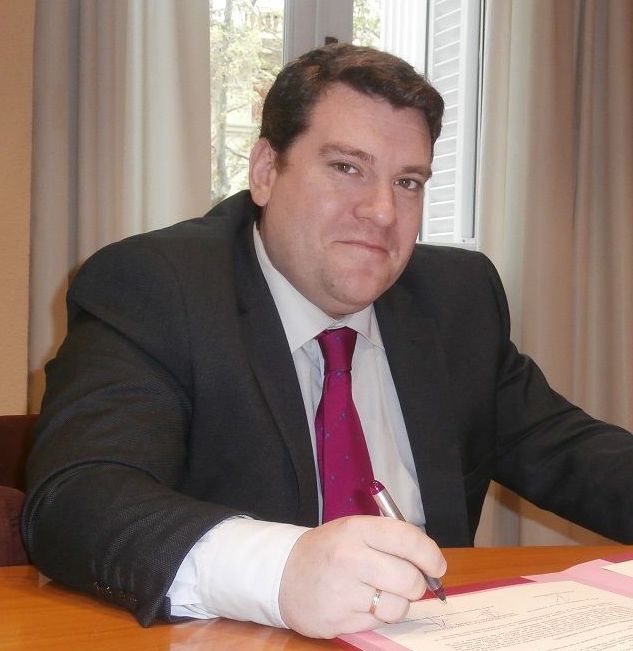
He is a professor of Criminology and director of the department at UDIMA and has been a member of the Federation of Associations of Criminologists of Spain (FACE) since 2007. He is also an associate professor at the Crimina Center of the Miguel Hernández University. He has participated in various intervention projects in alternative measures to prison in the field of road safety and in projects aimed at preventing school violence and cyberbullying of minors. He received the award from the Professional Colleges of Criminology in 2018 and the award from the area of criminological research of the FACE in 2011. He also received the “Trino Quijano” award from the Association of Local Police Chiefs of Alicante in 2008.
His research lines are: Cybercriminology, bullying and cyberbullying, analysis of instruments for crime prevention in educational centers.
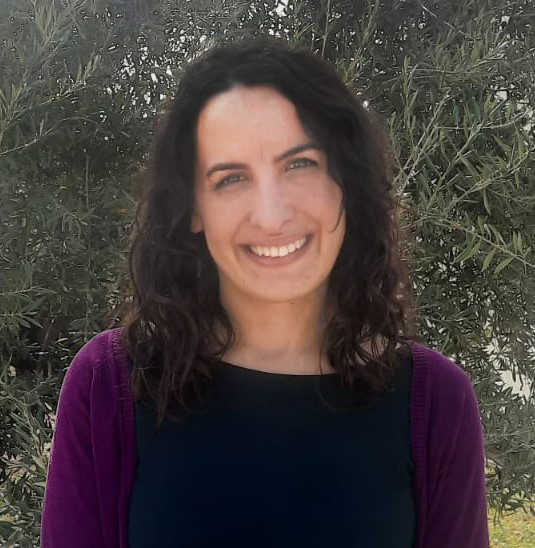
She holds a PhD in Psychology from the University of Granada, a degree and a master’s degree in General Health Psychology and in applied research on mental disorders from the University of Granada and Huelva, respectively. Currently, she is a postdoctoral researcher at the University of Granada, in the department of personality, assessment and psychological treatment.
More specifically, her research interests are neuroscientific variables such as morality, emotional regulation, empathy, neuropsychology, and more) in gender violence. Her most recent research interest lies in analyzing the complexity of gender violence from a multi-factorial perspective, identifying the factors that promote this type of violence.
In these areas, her doctoral thesis stands out entitled “Brain mechanisms of moral decision-making and emotional regulation, cognitive re-evaluation and empathy, in men convicted of gender violence.” She has collaborated in international and national research projects, for example: neuroscientific characteristics in psychopaths and criminals; assessment of neuropsychological tests; and psychological characteristics of Ecuadorian convicts.

PhD in Psychology, degree in criminology and master’s degree in Forensic Psychology and in Personality and Behavior Research, graduated from the University of Barcelona. Currently, Ana Martínez is a professor of psychology and criminology at the same, as well as a research member of the GEAV (Group for Advanced Studies in Violence).
More specifically, her research interests are juvenile delinquency, criminal careers and readiness to change. Her most recent research interest is post-penitentiary services as useful interventions to ensure desistance from crime. She has collaborated with the study group in different research projects on prediction, treatment and prevention of offenders.
In these areas, her doctoral thesis entitled “Therapeutic change and effectiveness of psychological treatment of sexual offenders” stands out and she has disseminated the results of the research in different publications and several international and national conferences on Psychology and Criminology.
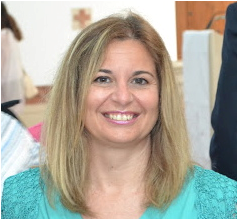
Anabel Cerezo (Zaragoza, Spain, 1969) received her M.S. and Ph.D. in Criminal Law and Criminology in 1992 and 1998, respectively, from the University of Malaga (Spain). Since 1993, she joined the Criminal Law Department at the University of Malaga, where she actually is an Associate Professor. She was Fulbright Visiting Postdoc at the School of Criminal Justice, Rutgers University, Newark (U.S.) and Visiting Researcher at the Institute of Criminology, Cambridge (U.K.), at the Faculty of Law, Queensland University of Technology, Brisbane (Australia), at the Institute of information Sciences and Electronics, Tsukuba University (Japan) and at the Leuven Institute of Criminology (Belgium).
Prof. Cerezo is currently Director of Institute of Criminologyin University of Malaga. She has been President and Executive Secretary of the Spanish Society of Criminological Research (SEIC).
Prof. Cerezo has been participated in some conferences program committees and organized some workshops. She has been participated in several research projects. Her areas of research and specialisation span the subjects of victimology, prisons, domestic violence, cybercrime and drugs. She has authored and co-authored several books and journals and published well over fifty papers in conference proceedings.
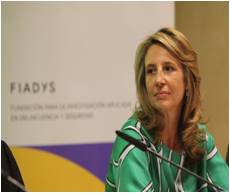
Andrea Giménez-Salinas Framis is President of the Foundation for Applied Research on Crime and Security (FIADyS) ans Associate Professor at the Universidad Pontificia Comillas. Phd in Law and Criminology at the University of Castilla-La Mancha and Msc in Criminology at the University of Montreal. She has been lecturer and researcher in the University of Castilla-La Mancha and Madrid’s Universidad Autónoma (Institute of Forensic Sciences and Security). Recognised as Associate Professor by the National Agency for Quality Assessment and Accreditation of Spain (ANECA), she has been visiting researcher in the Centre National de Recherche Scientifique (France), the University of Buenos Aires and the International Centre for Comparative Criminology (Canada). She teaches post-graduate courses regularly at several universities and is also an Academic Board member of the International PHD in Criminology coordinated by Transcrime. Former President of the Spanish Society of Criminological Research (2009-2011), she has coordinated and participated in more than 25 national and European research projects and has been evaluator of 7FP proposals for the EU Commission. She was awarded the Order of Merit of the Spanish police Guardia Civil (white badge) in 2016, and the Medal of Social Penitentiary Merit (with the other members of the research team) in 2011.
Research areas: expert in organised crime in the following research fields: criminal organisations, illegal markets (human and drug trafficking), infiltration of the economy and political institutions by organised crime and transantional dimensions. She has also conducted research projects on issues related to private and public security, terorrism financing, corruption and hate crimes.

Carmen Jordá Sanz holds a PhD in Law, Government and Public Policy from the Autonomous University of Madrid (UAM), where she also earned degrees in Psychology and Law. She also holds an Official Master’s Degree in Criminology and Juvenile Delinquency from the University of Castilla–La Mancha, a Master’s Degree in Criminal Analysis and Investigation from the Institute of Forensic Sciences and Security (ICFS-UAM), and a Master’s Degree in Digital Evidence and Cybercrime Prevention from the National Centre of Excellence in Cybersecurity (CNEC). She subsequently worked for four years as a European researcher at ICFS-UAM, participating in several research projects funded by the European Commission.
At the national level, she has developed research projects for the Spanish Observatory on Racism and Xenophobia (OBERAXE, Ministry of Inclusion, Social Security and Migration, 2018–2019), the Guardia Civil’s Centre for Analysis and Foresight, the University Institute for Research on Homeland Security (IUISI-UNED, 2012–2018), and Red.es (Secretariat of State for Digitalisation and Artificial Intelligence, 2015).
Her international research experience includes projects funded by the European Commission, carried out in collaboration with the Departments of Biological Psychology and Computer Engineering at UAM. Notable projects include FakeCare (2013–2014), CEREU – Countering Extortion Racketeering in the EU (2014–2016), Mandola – Monitoring and Detecting Online Hate Speech (2016–2017), and the Private Corruption Barometer (2018).
She has also been involved in teaching innovation projects, such as the OECD initiative “Teaching, Learning and Assessing Creativity and Critical Thinking in Education” (CERI, 2022), as well as the Mediation Space and the Crime Scene in Virtual Reality projects developed with the Teaching Innovation Department at Camilo José Cela University (2018–2023). In addition, she has completed specialised training programmes, including Complex Problem Solving (UNIR, 2022) and the training course “Stakeholder Engagement for the Implementation of the UN Convention against Transnational Organized Crime” delivered by the UNODC Civil Society Unit (2022).
For the past four years, she has served as Principal Investigator of the TECSEC research group at Camilo José Cela University, leading two projects funded by the Vice-Rectorate for Research: AIDIA, focused on artificial intelligence, and the ongoing CRIMIDATA project, which addresses the extraction of criminologically relevant information from the internet. She also acts as a peer reviewer for academic journals such as Revista Criminalidad (SJR Q2), Revista Española de Investigación Criminológica (Scopus, FECYT-certified), and Revista de Derecho Penal y Criminología (Latindex).
She holds the main academic accreditations of the Spanish university system awarded by the National Agency for Quality Assessment and Accreditation (ANECA), including Assistant Professor, Associate Professor, and Private University Professor under the Academic Staff Evaluation Programme (PEP). She has also been awarded a recognised six-year research period (sexenio) by the National Commission for the Evaluation of Research Activity (CNEAI), attesting to the quality, continuity, and impact of her scientific output in the multidisciplinary field of Criminology. Additionally, she holds the CCS-S Security Awareness certification issued by the Cybersecurity Certification Agency.
Committed to knowledge transfer, she has participated annually in the Madri+d Science Week, contributing to bringing research on cybersecurity, emerging technologies, and digital crime closer to the general public, particularly young audiences. This commitment is also reflected in her science communication work, with more than ten articles published in outlets such as The Conversation España and TELOS, addressing the social impact of technology, digital risks, and the ethical challenges of artificial intelligence and surveillance.
She has also been recognised by Forbes magazine as one of Spain’s “40 Best Futurists” in 2021 and 2022, and in 2024 she published a popular science book with the publishing house 0Xword (Telefónica Group), focusing on the intersection of technology, society, and security.
Her research interests focus on organised crime, corporate crime, and the impact of technology on security and society.
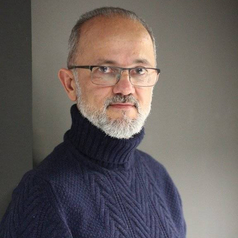
Cesar San Juan was graduated in Psychology in the Basque Country University in 1987. He specialized in Social Psychology in the Catholic University of Lovaina (Belgium) in 1989 with the research memory Social Representations of AIDS and politic-religious orientation in the Basque Country.
He got the PhD in Social Psychology in the Basque Country University in 1991 with the thesis Social representations of AIDS: Discourses and Cognitive Slants.
Nowadays, he is associate professor in the Department of Social Psychology and Behaviour Sciences Methodology of the Basque Country University. He teaches Criminal Psychology and the Post-graduated course Special Questions about Social ProgramsEvaluation. In the other hand, he is Research Director in the Basque Institute of Criminology where he has developed several sociological researches financed by Public and Private Institutions.
He has been guest teacher by the Diego Portales University (Santiago de Chile, Chile), Central American University (Managua, Nicaragua), Mayor of San Simon University (Bolivia), London School of Economics (London, United Kingdom), José Simón Cañas University (San Salvador, El Salvador) and the Palermo University (Buenos Aires, Argentina).
He has published papers in several Scientific Journals mainly focused on the analysis of Social Problems, like migrations, juvenile delinquency, child abuse, etc.
Nowadays, he coordinates a research financed by the Basque Government lying in the Evaluation of the Juvenile Justice Plan.
His main research interests focus on Attitudes, Valuesand Ecological Behaviours(Environmental Psychology) and the research about the Fear of Crimeand Environmental Criminology,

Elisa Garcia-España is Full Professor in Criminal Law and Criminology, and Professor-Research in the Institute of Criminology at the University of Malaga. Currently she is also Assistant Director of the Institute of Criminology and Director of OCSPI (Observatory of criminal control system toward immigrants.
Elisa Garcia-España conducts research into the ways in which the criminal control system responds to immigrants, particularly police stops by racial bias, deportation as an alternative to the prison sentence, immigrants in prison and their chances of reinsertion to society, young immigrants in a situation of criminal risk, causes of crime of immigrants settled in the country and victimization.
See more at https://ocspi.wordpress.com
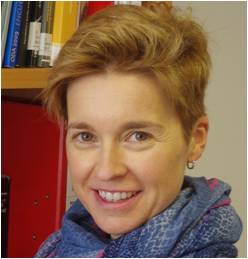
Esther Fernández Molina is Associate Professor in Criminology and Criminal Law at the University of Castilla-La Mancha. Since 2015 she is the head of the Research Group on Criminology and Juvenile Delinquency of this University. Her research interests have always centred on the juvenile justice system. She has been part of many working groups in Juvenile Justice both national and international. She also developed her research work in other topics related with Criminology: juvenile crime trends, access to justice, attitudes to punishment and justice system and fear of crime. She was the President of the Spanish Society of Criminological Research from 2013-2016.
Juvenile justice, delinquency trends, and public perceptions of crime (fear of crime, attitudes toward juvenile punishment, and attitudes toward penal institutions).
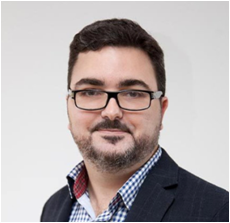
Fernando Miró-Llinares is Professor of Criminal Law and Criminology at the Miguel Hernández University in Elche (Spain), Dean of the Faculty of Social and Legal Sciences at the same University and Chair of the CRÍMINA Research Center for the study and prevention of crime. His main research interests can be divided in two areas, (1) Criminal Law, regarding the criminal protection of intellectual property rights; the criminal law of road safety and specifically the crimes of refusal to submit to alcohol testing and driving without a permit; criminal participation, in general, but based on it also key issues such as objective imputation and fraud, in general, and in corporate criminal law in particular; and (2) Criminology, circumscribed to Cybercrime are based on Environmental Criminology approaches such as cybervictimization, routine activities, cyberplaces, online radicalization and the use of Internet technologies, among others, both from a theoretical and empirical point of view. He is one of the most recognized and quoted cybercrime specialists in Spain, developing relevant contributions on the architecture of cyberspace, the different forms of cyber-victimization and the impact of online hate speech.
Professor Miró-Llinares is part of seven prestigious international networks such as the European Society of Criminology (ESC), the American Society of Criminology (ASC), the Spanish Society of Criminological Research (SEIC), the International Society of Criminology (ISC), the International Society of Criminal Law (ICLS), the Conference of Ministers of Justice of Ibero-American Countries (COMJIB) and participates in the Environmental Criminology and Crime Analysis Symposiums (ECCA).
As Principal Investigator, he has led national and regional projects and has participated in European Projects as a leading partner in Human Factors. During his research career he has written 10 books, more than 40 book chapters, and over 40 articles in various scientific journals and has given more than 100 lectures at Congresses, Seminars and Symposia.

She is currently a Member with a legal profile of the Ethics Committee for Research related to Human Beings (CEISH) at the University of the Basque Country/EHU, she is also Coordinator and main teacher of the MOOC with Miriadax, entitled: Restorative Justice: Praxis for the initiation and monitoring of projects at the University of the Basque Country. In 1998 she was honoured with the Junior Scholar Competition Award of the International Society of Criminology for her research comparing restorative justice in gypsy and non gypsy communities. Former coordinator of the degree in criminology (2013-2017), current coordinator of the UPV/EHU MOOC on Victimology (2016-), and co-director of the Master in Victimology of that University (2014-), she is also the co-editor of the Journal of Victimology/Revista de Victimología. She has authored books on migration and human rights, restorative justice, juries and the construction of the forensic truth, women’s local safety audits, victims of terrorism, and victims of sexual abuse.

PhD in Law from the Universidad Pontificia Comillas (ICADE), a University where he also studied Law Degree (E-1) and Master in Counseling and Family Mediation. From 2011 to 2020 he was a professor of Criminal Law and Criminal Policy at the European University in the Degrees in Law and Degree in Criminology. He currently holds the position of Academic Senior Director, LATAM at Cintana Education (USA) In 2002 he began his research training at the Santander Chair “Law and Minors” of the Comillas Pontifical University of which he is a member, and in 2005 he began his work in the field of direct intervention with juvenile offenders as a Centers Jurist. of Execution of Judicial Measures. Subsequently, he joined the International Juvenile Justice Observatory (Brussels), where he became its Executive Secretary and the Director of the International School of Juvenile Justice. At the European University he has held the position of Director of the Legal Area between 2013 and 2015, highlighting the implementation at said University of the Double Degree in Criminology and Psychology in the 2013/2014 academic year. He has been Director of the Postgraduate Diploma in Mediation and the Master’s Degree in Law at the Universidad Europea. He has participated in and organized many different scientific events at a national and international level, also participating in publications and R&D projects with national and international funding. Participating in the drafting process of the UNODC Juvenile Justice Model Law, he has been a member of the European Juvenile Justice Council since its creation. His main lines of research focus on crimes against property, minors’ rights, gender violence and bullying.
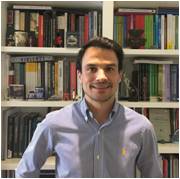
He holds a degree and a PhD in Psychology from the University of the Basque Country, as well as a degree in Criminology from the University of Barcelona. He has received training in forensic psychology at the Forensic Psychology Unit of the University of Santiago de Compostela and the Forensic Psychology Lab at the University of British Columbia in Vancouver, Canada. Accredited as a Senior Lecturer by ANECA and with two research productivity periods recognized by AQU, he served as teaching and research staff at the University of Barcelona (UB) for ten years. He is currently a Ramón y Cajal Researcher at the University of the Basque Country (UPV/EHU), where he leads research projects in the field of violence risk assessment.
In 2008, he was awarded the 2nd runner-up prize in the Victoria Kent National Award (Ministry of the Interior) and, in 2014, the Mariano Yela Award from the Spanish Society of Legal and Forensic Psychology, recognizing young researchers for excellence in research and knowledge transfer. He has published numerous articles in high-impact journals, book chapters, and manuals. In 2017, he published the first manual in Spanish on violence risk assessment, with Pirámide as the publisher. He is currently working on the revision and expansion of the violence risk assessment system used by the police in the Basque Country. Since 2020, he has been a member of the Criminal Psychology Board of the Spanish Society of Legal and Forensic Psychology.
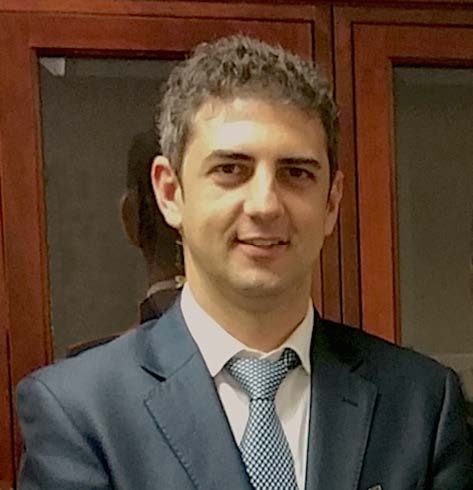
Prof. Jesús Palomo is a tenured professor of Economics at the Rey Juan Carlos University. He has a PhD in Computer Sciences and Mathematical Modeling, MA in Business Administration and MSc. in Management Computer Sciences. Currently, he is Director of the Security and Innovation Research Institute at the Rey Juan Carlos University. Previously he has been Visitor Researcher at the NATO Defense College (Rome), Consiglio Nazionale delle Ricerche (Italy), Duke University (USA), University of California at Santa Cruz (USA), National Institute of Environmental Health Sciences (USA), Danish Institute of Social Research (Denmark). Currently, he is Principal Investigator in Spain for the Project Private Corruption Barometer–Drafting and piloting a model for a comparative business victimization survey on private corruption in the EU, and Senior Researcher for the Project PayBack: Towards an EU Data Management System for Seized Assets.
He has published more than 60 research papers, books and book chapters, and has directed more than 15 international projects on Security and Defense, including being Research Director of the ISEC Project Center of Excellence in Asset Recovery and Training; Senior researcher in the ISEC Project Organised Crime Portfolio; and ISEC Project Tackling Illegal Economy. He has also been the Director of the NATOSPS Project UNSCR1325 Reload.
His main research interests are: decision sciences, data analysis, defense economics and statistics. In particular, on Security and Defense he has focused on Defense budgeting and capabilities, on Risk management and on Women, Peace and Security. He coordinated in 2014 the Workshop “Women, Peace and Security” sponsored by Public Diplomacy Division (NATO).
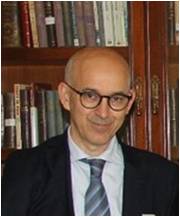
José Cid holds a PdH in Law. He is Associate Professor of Criminal Law & Criminology at the Universitat Autònoma de Barcelona, Faculty of Law, Dept. of Political Science and Public Law. He is Director of the research group Criminology applied to penology at Universitat Autònoma de Barcelona, since 2008.
His main research interests are: Desistance from crime, Resettlement of prisoners after release from prison, Effects of imprisonment, Parole and early release as a way to deal with high-risk offenders, Due process in back-end sentencing, Growth of imprisonment in Spain and Effectiveness of alternatives to prison to prevent recidivism.
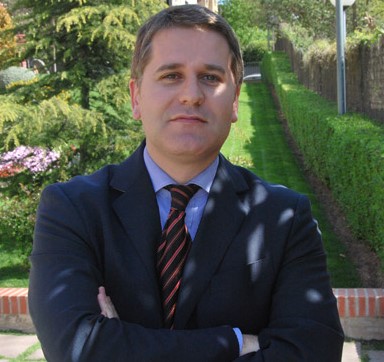
Jose R. Agustina is Professor of Criminal Law and Criminology at Universitat Abat Oliba CEU in Barcelona. He is the Head of the Department of Criminal Law and director of the Master’s program on Cybercrime and co-director of the Master’s degree on Forensic Psycopathology.
His research areas are at the interface between Criminal Law, Criminology and Criminal Policy, and include white collar and corporate crime, privacy issues, cybercrime and cyber victimization, and criminological theory. He serves as Editor-in Chief of Actualidad Criminológica y Penal series published by BdeF and Edisofer.
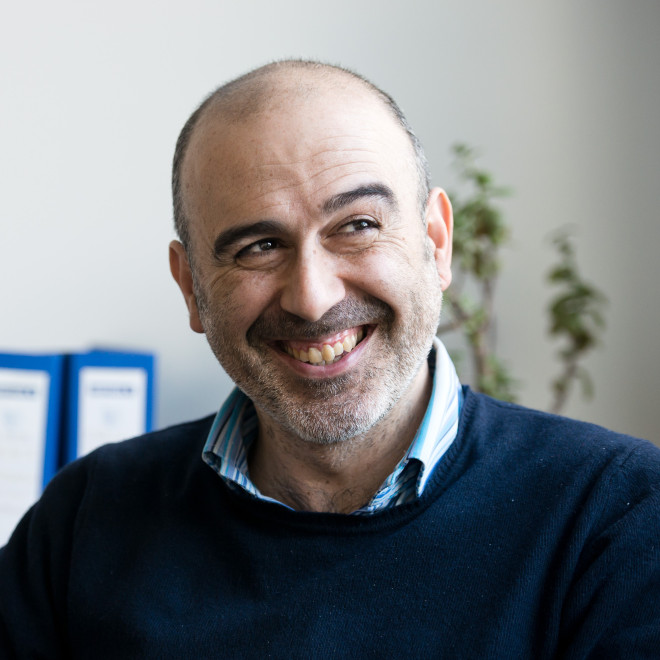
He currently holds the position of Senior Talentia (Dist Investigator) in the Department of Criminal Law and Criminal Sciences at the University of Seville. He was Professor of Quantitative Criminology at the Center for Criminology and Criminal Justice at the University of Manchester.
He received his BA in Public Law and a Postgraduate Degree in Criminology from the University of Seville (Spain). In 1997 he graduated with an MA in Criminal Justice at Rutgers University, receiving the Richard Hughes Award for topping my promotion. He obtained his first PhD from the Department of Criminal Law at the University of Seville in February of 2000 and a second PhD in Criminal Justice from Rutgers University in January of 2002. Both thesis focused on gender violence. My Spanish dissertation was the first survey on intimate partner violence in Spain and my US-based dissertation, relying on GIS and spatial econometric tools, explored the social geography of gender violence in New York City.
He worked as a research fellow of the Andalusian Institute of Criminology, before moving to the USA. He lived and worked in New York working as a research associate at Victim Services (now called Safe Horizon), where he was involved on elder abuse research, and as senior research associate at the Violence Institute of New Jersey (UMDNJ, now part of Rutgers), where he helped to implement public health epidemiological surveillance on violence. He was also a research fellow of the National Consortium on Violence Research (now defunct), as well as a visiting fellow at the Universidade Federal da Bahia (Brazil) and Heuni (Finland).
With all this travelling, it is little surprise he has a strong interest in comparative criminology and criminal justice. He retained an interest in crime and justice in Spain and the Americas. He is a member of a research network based in Catalonya that studies crime and sentencing policy in Spain . He was also the Chief Editor of the official journal of the Spanish Society of Criminology from 2003 to 2005 and continue to collaborate with this journal as an assistant editor. In June 2016 He was elected president of the Spanish Society of Criminology.
Since 2000, however, Manchester is home. My work in the UK has covered domestic violence, homicide, stop and search, and gangs.
More information in: https://www.research.manchester.ac.uk/portal/juanjo.medina.html

She is a doctor from the University of Valencia, with a Doctoral Thesis on intelligence cooperation in the EU.
Graduated in Political Science and Administration with a specialty in International Relations from the Complutense University of Madrid, among the courses taken are: the Advanced Studies Course in National Defense (XXXVII promotion) CESEDEN; Conflict Prevention Diploma; Diploma on Security and Cooperation in the Mediterranean, both from the Complutense University of Madrid; Permanent Jean Monet Course on the European Community System, also held at the Complutense University of Madrid.
Currently, she is full professor of International Relations and Security at the European University of Madrid, coordinating this Bachelor Degree. She has also held teaching duties at the Staffordshire University Program, at ESERP Business and Social Sciences School; in the Marine Infantry School “General Albacete y Fuster”, collaborating with the Spanish Institute of Strategic Studies and the Center for Higher Studies for National Defense. Likewise, she was a professor in the Master of Strategic Intelligence and Prospective of the Colombian College of Intelligence and Counterintelligence “BG. Ricardo Charry Solano” in 2009 and 2010, realizing, in later years, training tasks for the Colombian Army in Analysis and Methodology of Intelligence.
She is currently member of the Observatory on Transnational Organized Crime of the University of Salamanca and the Working Group of the Observatory of Illicit Traffic and Criminal Networks of the Elcano Royal Institute. She has been a researcher-collaborator of the Chair “Services of Intelligence and Democratic Systems” of the Rey Juan Carlos University of Madrid, being a member of the Editorial Board of the Magazine “Intelligence and Security. Journal of Analysis and Prospective “.
She has also been a researcher at the Research Unit on Security and International Cooperation of the Complutense University of Madrid, the University Institute “General Gutiérrez Mellado” and the Prospective and International Economic Analysis Group of the Antonio de Nebrija University.
Regarding his professional activity in the field of Intelligence, she developed her work as a Senior Intelligence Analyst at Thint Company in Spain, working for international projects and in the Military Intelligence department of the War College, as Lieutenant Reservist.
Currently, she is member of the scientific committee of the Center for Security Studies of the University of Santiago de Compostela, where she teaches the Master’s Degree in International Security at the same center and evaluates, among other scientific journals, the Comillas Journal of International Relations of the University Pontificia de Comillas and URVIO belonging to Flacso- Ecuador.
Among other international activities, she has been member of the Board of Directors of the Spanish Atlantic Association and member of the European Dialogue Executive. Finally, she participates, in recent years, in 7 research projects with public and private funding, the realization of a dozen articles in national and international indexed journals and participation in 12 books, as well as their participation in seminars and conferences and international organizations on Strategic Intelligence, Organized Crime, Terrorism and International Security.
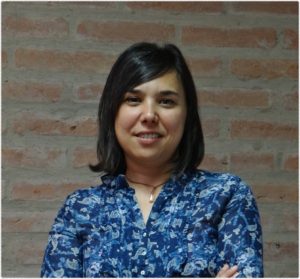
Dr. Arbach is a behavioral scientist at the Psychological Research Institute of the National Council of Scientific and Technical Research in Argentina. She is a Chair Professor of Criminal Psychology and the current Director of the Laboratory of Psychological and Educational Assessment at the Faculty of Psychology in the National University of Cordoba.
Her primary area of expertise is clinical-forensic violence risk assessment in criminal and civil settings. She received her doctorate in Health and Clinical Psychology from the University of Barcelona in 2007. She is associate researcher of the Group of Advanced Studies on Violence at this university. She is a former associate professor of Criminal Psychology and Forensic Psychiatry courses in the Degree of Criminology of the University Pompeu Fabra. She also takes part in various professional and academic training activities in Spain and Latin American countries.
She is a member of the National Program Science and Justice of the CONICET delivering consulting services on Criminal Psychology for Argentinean Justice Administration and Security agencies.
Her main research areas of interest are: (a) violence risk structured assessment and management at different settings (institutional and community) and populations (youth, women, psychiatric patients, and prison inmates), (b) the translation, adaptation and validation of forensic psychological assessment tools, (c) the empirical contrast of well-established criminological theories in underexplored contexts (mainly South American countries), and (d) the analysis of dyadic types on intimate partner relationships.
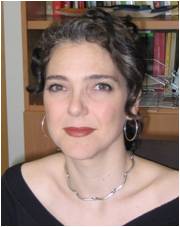
Laura Pozuelo is Associate Professor of Criminal Law at Autonomous University of Madrid since 2010. She graduated in Law and got her PhD at the Autonomous University of Madrid.
Teaching in different institutions in Spain and Latin America. Conferences and Congresses in Spain, Argentina, Colombia, Bolivia, Mexico.
During her career she has written different books and book chapters, and many articles in various scientific journals.
Her areas of research are Criminal Theory, Disqualification penalties, Criminal Policy, Media & Criminal Law, Juvenil Delinquency, Sentencing, recidivism and concurrence of offences.
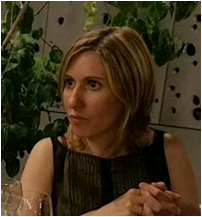
She is a professor of Environmental Criminology and Environmental Psychology at the University of the Basque Country UPV/EHU. Member of the Applied Criminology research group, linked to the Basque Institute of Criminology, she develops her research in the field of urban security. More specifically, her areas of interest include the perception of insecurity by citizens and its relationship with the quality of urban life, including innovative methodologies for the study of fear of crime; as well as the study of criminal events and alternatives for their prevention from an environmental and situational point of view. In these areas, her publications include the volume “Environmental Criminology, ecology of crime and security”, co-authored with Prof. César San Juan, and she is also the author of various articles in international journals of impact. She has participated in multiple research projects, and led the project “The city for all: perception of security and mobility on foot in public space”. She is currently involved in an international project with researchers from the University of Manchester and the University of Porto on new methodologies for the study of the perception of crime and place. She has carried out research stays at the University of Surrey in the United Kingdom and at the Jill Dando Institute of Crime Science, at the University College of London. He received the IV Pinatel Award for the best research work in Criminology in 2010, awarded by the ICAV, and the SEIC Award for the promotion of New Researchers in Criminology in 2006.
Lines of research:
Perception of insecurity, social perception of crime, fear of crime and self-protection behaviours. Environmental criminology: spatial analysis of crime and its perception. Sustainability and quality of urban life.

Luis de la Corte ibáñez holds a P.D. in Psychology. He is Director of Strategic Studies and Intelligence in the Institute of Forensic and Security Sciences and Full Professor in the Department of Social Psychology and Methodology of the Autonomous University of Madrid (Spain).
His main research topics are terrorism, political violence, organized crime, security and strategic studies and Intelligence. He is author of numerous scientific papers and chapters and several books on those topics.
He has been visiting researcher in various spanish and foreign universities, including The London School of Economics and Political Sciences and the Centre for Sudies of Terrorism and Political Violence at the University of St. Andrews (Uk).
Currently, profesfor De la Corte co-directs the Cycle Superior Intelligence analysis, at the Autonomous University of Auniversity of Madrid; Master of Analysis and Prevention of Terrorism, at the University Rey Juan Carlos, Master in Intelligence Analisis, at the University Rey Juan Carlos and University Carlos III; and Master of Terrorism Studies of the International University of la Rioja.
Professor De la Corte has also collaborated with several Think Tanks, as the Elcano Royal Institute, Pablo Iglesias Foundation, Foundation for Analysis and Social Studies (FAES), Crimina Superior Center for the Study and Prevention of Crime. At the same time he collaborated very often with numerous spanish public agencies linked to various ministries:
Ministry of the Presidency: Centro Nacional de Inteligencia.
Ministry of Foreign Affairs: Escuela Diplomática.
Ministry of Defence: Centro Superior de Estudios de la Defensa Nacional, Instituto español de Estudios Estratégicos, Mando de Adiestramiento y Doctrina del Ejército de Tierra, Escuela de Guerra del Ejército de Tierra, Nato Excellency Centre on IED¨S.
Ministry of Interior: Centro Nacional de Coordinación Antiterrorista, Guardia Civil, Policía Nacional.
In 2014 Professor de la Corte received the Cross of the Order of Merit from Guardia Civil.
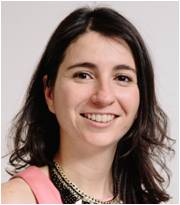
Meritxell Pérez is Assistant Professor of Criminology at Universidad Pontificia de Comillas. She is the General Secretary of the Foundation for Applied Research in Crime and Security (FIADyS). She graduated in Psychology and Criminology at the University of Barcelone, where she also got her PhD in Psychology.
She has been lecturer and researcher in the European University of Madrid and Madrid’s Universidad Autónoma (Institute of Forensic Sciences and Security). She has been visiting scholar at the Institute of Criminology at the University of Cambridge (UK). She was awarded the Medal of Social Penitentiary Merit (with the other members of the research team) in 2011.
Main areas of research: sexual violence, intimate partner violence, domestic violence, hate crimes, risk assessment, etc.
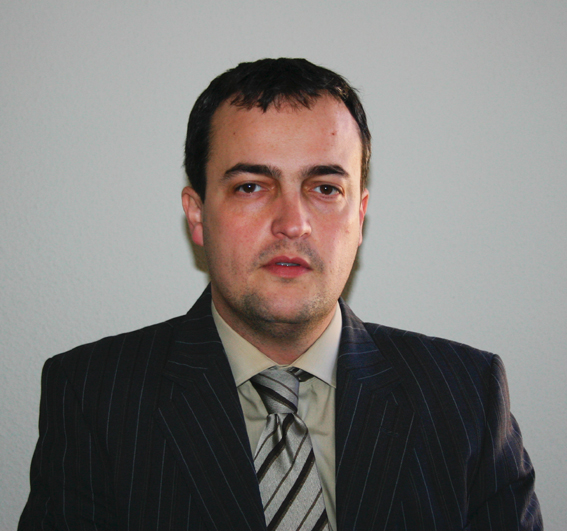
Mr. Oscar Jaime-Jiménez is tenured professor at the UNED University and also at the Public University of Navarre of Spain. He graduated in Politics and Sociology at the Madrid Complutense University. He has got a PhD in Politics at Salamanca University. After, he continued his training at the Ohio State University. He also has been a visitor researcher at Oxford University and lecturer in Political Science at the Burgos University. He has been mainly working in several aspects related to anti-terrorist police response and the influence of political transitions on police organizations.
He was Executive Advisor to the Spanish National Police Director General and also General Secretary at the Gabinete de Estudios de Seguridad Interior of the Ministry of Interior. He has occupied the post of Director of the Institute of Police Studies from 2004 until 2006 and Director General of the Fundación Policía Española.
He has written several articles and cooperated in many collective works. Some of his contributions are Policía, terrorismo y cambio político en España (1976-1996), Valencia: Tirant lo Blanch, 2002; “De la “Guerra revolucionaria” a la guerra de desgaste. La espiral violenta de ETA (1968-1978)”, en Gaizka Fernández y Florencio Domínguez (coor.), Pardines. Cuando ETA empezó a matar, Madrid: Tecnos, 2018, pp. 197-230; “Los desafíos de la policía como actor político en España”, Revista Española de Ciencia Política, (2017) 45, 147-172; “Democratic politics and the strenght of the rule of law”, en Rafael Leonisio et al., ETA’s Terrorist Campaign: From Violence to Politics, 1968–2015, Nueva York: Routledge, 2017; “Comunicación en seguridad pública: la interacción entre políticos, policías, medios de comunicación y sociedad”, en Rafael Martínez (ed.), Comunicación política en Seguridad y Defensa: España y América Latina, Barcelona: CIDOB, 2017, pp. 63-78.

Sonia Alda Mejías is a Senior Analyst and Director of the Observatory on Illegal Trafficking and Criminal Networks at the Elcano Royal Institute, a Lecturer at the Department of International Relations at the Universidad Pontificia Comillas and a member of the academic staff at the Master’s on Peace, Security and Defence at the Instituto General Gutierrez Mellado (Universidad Nacional de Educación a Distancia, UNED) and at the Master’s on Public Policy Security and Defence at the Universidad Camilo José Cela. She is also a tutor at the UNED for a variety of degrees. She has a PhD in Political Science from the Universidad Autónoma de Madrid and on several occasions has been a visiting scholar at Tulane University, New Orleans.
She was a researcher in the field of Security and Defence in Latin America at the Instituto General Gutierrez Mellado (UNED) from 20014 to 2014. She has additionally been a visiting researcher at the Centro Estratégico de Estudios Regionales de Seguridad at the Escuela Superior de Guerra (Colombia) and at the Centro de Altos Estudios Nacionales (Perú), and a guest lecturer at the Universidade de São Paulo (Brazil), the Universidad Militar de Nueva Granada (Colombia), the Centro de Altos Estudios Nacionales (Peru) and the Universidad Francisco Marroquín (Guatemala).
Areas of research: Sonia Alda’s field of expertise is security and defence in Latin America. She has followed various lines of research relating to Defence as a public policy under democratic frameworks regulating civil-military relations. She has also analysed the roles assigned in the region to military and police forces in the new threat scenario. In recent years she has especially focused on organised crime, in an increasingly turbulent context, and security policies.

She holds a PhD in Law. Writer, researcher, public speaker, national and international consultant, she is an expert in Criminal Law and Human Rights.
She is currently Full Professor of Criminal Law at Alcalá University Law School (Madrid, Spain) and was former Legal Adviser at the Spanish Constitutional Court for more than twelve years. During her long academic career, Teresa has been teaching and researching not only in Spain but also in many other countries (Germany, USA, Argentina, Cuba, Costa Rica, Ecuador, Nicaragua). Moreover, she has taken part in capacity building and training activities for judges, prosecutors, lawyers and police officers, and given expert advice on criminal policy and law enforcement in many fora.
Teresa is author of four books and more than forty articles and papers. Her areas of expertise include risk crimes, economic criminality, corporate crimes, criminal policy as well as terrorism, torture, abortion, gender violence, freedom of expression and Human Trafficking. Business and Human Trafficking is the research project she is currently conducting, focusing on the accountability of business engaged in the trafficking for labor exploitation.
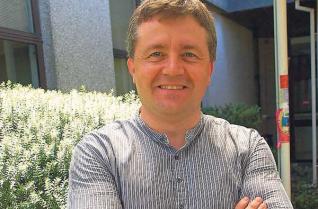
His teaching experience dates back to the 1998-2000 academic year in the subject “Evaluation and intervention in Legal Psychology” of the Bachelor of Psychology at the University of Santiago de Compostela. This subject was taught until the 2010-11 academic year, when the curriculum was discontinued.
From 2005-2006 he participated in the Doctoral Program in Clinical Psychology and Psychobiology at the USC (quality mention in the 2007-2008 and 2008-2009 academic years) in the subject “Advances in the design and evaluation of Programs for the prevention of drug abuse and problematic behavior in children and adolescents.” Since the 2010-2011 academic year, he has also been collaborating in teaching the subject “Intervention in Legal and Forensic Psychology” of the Master’s Degree in Work and Organizational Psychology, Forensic Legal Psychology and Social Intervention at the USC and since the 2013-2014 academic year in teaching the subject “Prevention and Intervention Programs in Behavioral Problems” of the Master’s Degree in General Health Psychology at the USC.
In the Master’s Degree in Criminology at the University of Castilla la Mancha, he has been collaborating since the 2013-2014 academic year in the subject “Risk management and prevention of antisocial and criminal behavior”.
From a research perspective, he has been a researcher in more than 20 research projects and contracts related to the prevention of drug use and other risky behaviors in youth. These include the study entitled: “Analysis of the “botellón” phenomenon and alcohol consumption in the city of Lugo”, carried out in 2005-2006 and the project “Assessment and management of the risk of recidivism of drivers who infringe the Law on Traffic, Circulation of Motor Vehicles and Road Safety” granted by the DGT in 2015, of which he is the principal investigator.
As a result of this research, he has been the author of more than 50 scientific-technical publications including books, book chapters and articles in scientific journals as well as contributions to a large number of scientific conferences (the most important ones can be consulted at www.orcid.org/0000-0002-9140-1533). His scientific production has achieved high impact rates as quantified by criteria such as the h index achieved (12 in ResearchID and SCOPUS).
Studies and Coordination Office of the Secretary of State for Security (Ministry of Home Affairs)

Agency for the Reeducation and Reinsertion of the Legal Minor Offender (Community of Madrid)
European University of Madrid

Diagrama Foundation Psychosocial Intervention

H-Amikeco Association

Universidad Pontifica Comillas

Valencian International University

The team of professionals in charge of carrying out the projects’s developmnet
Carla Martínez Ventura
Project Technician and Communications Manager
Psychologist – Universitat de Barcelona
Gadea Velasco Fernández
Project Technician
Psychologist and Criminologist – Universidad Ponitificia Comillas (CIHS)
Marina Atanes Trigueros
Project Technician
Psychologist and Criminologist – Universidad Ponitificia Comillas (CIHS)
María Izco Rincón
Project Developer
PhD in Legal and Social Sciences – University of Malaga